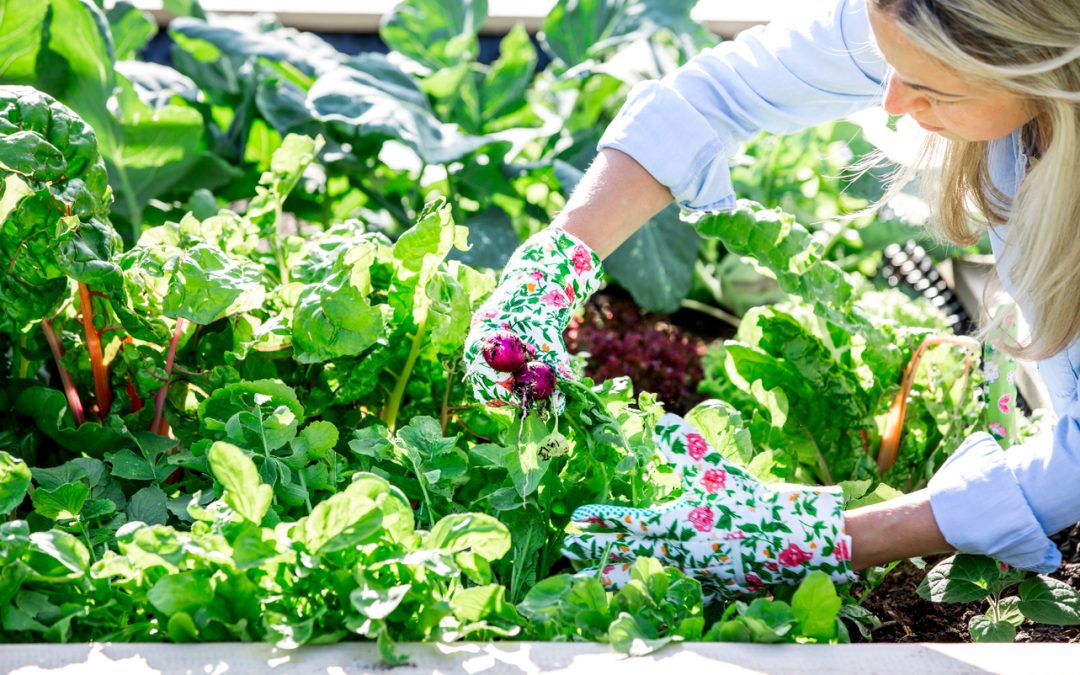Organic gardening is growing in popularity as people become more health conscious. Built upon the principle that nature knows best, organic gardening lets you control what you consume by eliminating pesticides and synthetic fertilizers.
The goal is a chemical-free garden that relies on organic gardening practices such as composting, mulching, and adding natural fertilizers to replenish the soil. Organic gardeners also rely on natural pest control methods to manage pests and build healthy soil using organic matter for a thriving garden. This combination is not only great at providing healthy and chemical-free food but also sustainable and environmentally friendly.
Understanding Organic Gardening
Organic gardening is gardening without using synthetic fertilizers and pesticides. Unlike traditional gardening where you rely on synthetic chemicals for plant growth, organic gardening relies on nature’s natural rhythms and cycles to feed and replenish the soil, so it can feed your plants. The idea is to improve the quality of soil so it can support healthy plant growth.
By growing your produce organically, you can reduce chemical runoff that is harmful to the environment. Most importantly, organic produce is healthier and more nutritious than conventionally grown food as it does not contain toxic chemicals.
Soil Preparation and Maintenance
Healthy soil is a delicate mix of weathered rock (inorganic soil particles), organic matter, water, air, and a host of organisms that facilitate decomposition and the nutrient cycle. When soil has the right composition of each of these elements, it can support plant growth without relying on synthetic fertilizers. In particular, soil with high organic matter results in higher plant yields leading to long-term sustainability.
Since organic matter comes from decomposing plant and animal remains, composting and adding natural fertilizers such as aged animal manure can help build up the biological life in your soil and also improve structure and moisture retention. For best results, perform soil and pH testing regularly to determine what adjustments are needed.
Choosing the Right Plants
The key to a thriving organic garden is choosing the right plants. Choose plants that can adapt to your local climate and soil conditions. Native species and heirloom varieties are examples of sustainable plants that can do well in your organic garden. Check your local garden center to see what works best for other locals, and start with that.
Because you are working hand in hand with nature to support your garden, it helps to know a few basics. For instance, coriander, dill, and fennel attract pollinators. On the other hand, mint and lavender can help with pest control, while garlic and chives can help prevent diseases. If any of these plants can thrive in your local climate and soil conditions, consider having them in your garden.
Pest and Weed Control Without Chemicals
Pest and weed control in an organic garden requires an integrated approach using various methods.
Natural Methods for Pest Control
Beneficial insects such as ladybugs, praying mantis, and lacewings are a must-have in your chemical-free garden. Ladybugs feed on aphids and mites, both of which are harmful to your plants. Lacewings also eat aphids, other insect larvae, and leafhoppers. Praying mantis, on the other hand, feed on beetles, caterpillars, and other insects.
Homemade pest repellents include diatomaceous earth, neem oil spray, garlic spray, and chili pepper spray.
Organic Weed Control Techniques
Adding a layer of organic mulches can help suppress weeds. If other weed control techniques are not working effectively, consider manual removal. You can pull out weeds using your hands or gardening tools.
Watering and Conservation
Watering your organic garden effectively involves understanding your plants and soil type. If your plants become dull and start wilting, they need water. Younger plants need more water than mature plants. Some plants such as onions do not need as much water as cucumbers do.
Additionally, increasing the amount of organic matter in your soil increases its water-holding capacity. Most importantly, know what time of day to water your plants. Evenings and early mornings are ideal since plants will have enough time to absorb the water.
Tools and Resources for Organic Gardening
Organic gardening requires a few essential tools such as trowels, pruners, and garden forks for planting and maintaining your garden. These tools are readily available in your local hardware store. If you are not sure what tools to use and where to start, ask your local hardware store for guidance.
Conclusion
Organic gardening is one of the most rewarding projects that you can start at home. Besides providing you with healthy, tasty, and chemical-free foods, it is eco-friendly and generally good for the environment as a whole.
If you are planning to start an organic garden, the team at Clarks Ace Hardware is happy to help you get started. We provide expert advice and guidance for organic gardening enthusiasts so you can create a thriving garden that you will love. Contact us or visit our store for organic gardening tools and supplies.
CLARKS ACE HARDWARE
Ellicott City
10325 Baltimore National Pike
Ellicott City, MD 21042


Recent Comments